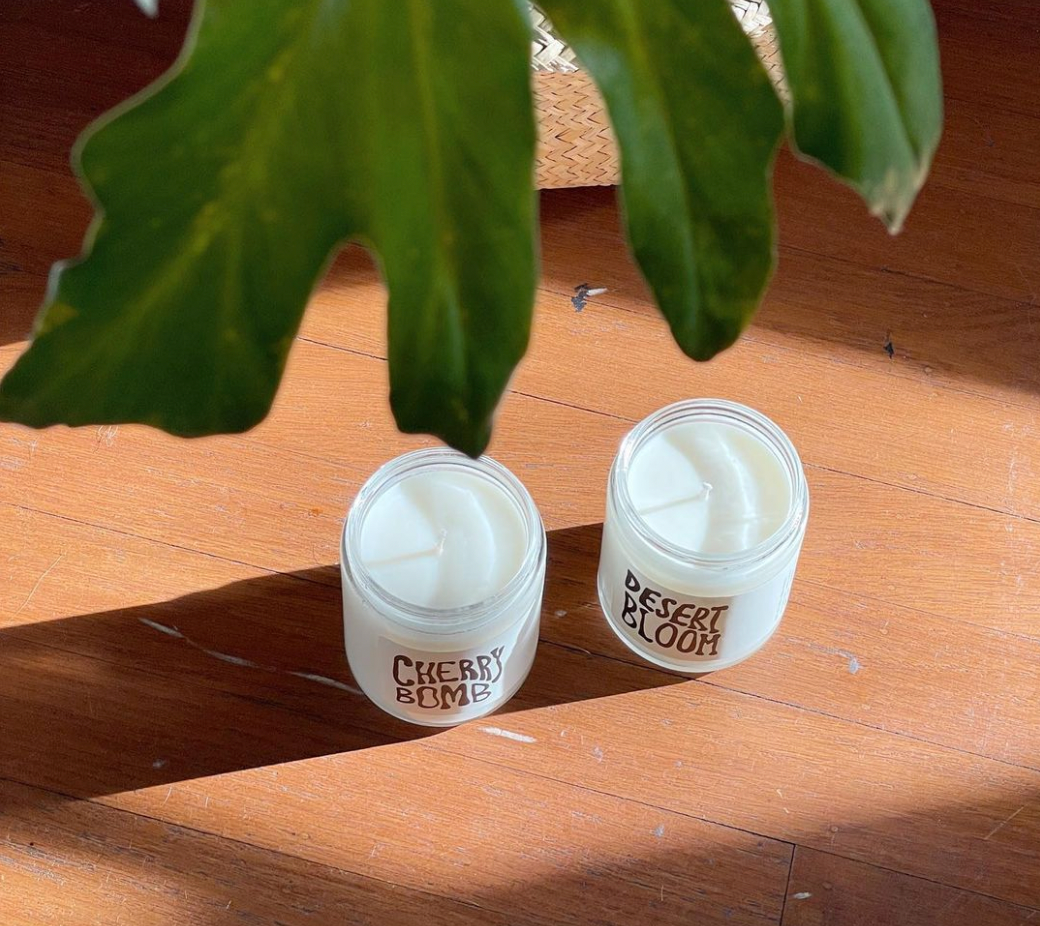I've been asked more than a few times, "Do you use essential oils in your candles?" And many times when I answer with "no," I'm met with confusion. How could we pride ourselves on being natural and eco-friendly while we're simultaneously using synthetic ingredients?
Despite my efforts to be as natural and "clean" as possible when it comes to formulating our products, I've firmly believed in the notion that natural doesn't necessarily mean safer, or better. Yes, we use 100% soy wax and cotton-core wicks, but when it comes to fragrance we prefer synthetic for a few reasons.
Essential oils require massive amounts of plants.
This statistic gives us insight on how plants for resource-intensive essential oils are farmed. Most popular essential-oils companies source their raw materials from corporate farms that cultivate massive quantities of plants. Agriculture is the leading source of pollution in many countries. Pesticides, fertilizers and other toxic farm chemicals can poison fresh water, marine ecosystems, air and soil. They also can remain in the environment for generations... but that's another story for another day. It's also important to remember that not every pollutant is synthetic, and many essential oils can be toxic to wildlife if not disposed of properly.
With synthetics, the possibilities are endless!
There are many fragrances that we enjoy that simply wouldn't exist without the invention of synthetic fragrance oils. Natural oils are for the most part finite, but synthetic fragrances allow us to formulate scents that are never found in nature. Additionally, some essential oils are too expensive or unethical to produce that we would never be able to experience them without their synthetic counterpart.
Synthetic fragrances are designed specifically for their intended use.
If you've every tried to use essential oils in candle making, you would know that it just doesn't smell as strong as synthetic fragrances. You would have to use so much more essential oils to achieve a fraction of the scent throw as a synthetic fragrance. This can be credited to the simple fact that synthetics are formulated for their specific use! The synthetic fragrances are synthesized in a lab where scientists can cater the compound specifically for candle making, soap making, cosmetics, etc. Though they may be great for other settings, essential oils just aren't formulated for candle making.
Synthetics are cheaper too!
Expensive doesn't always mean better applies heavily to fragrance oils! If I used essential oils in my candle making, I would have to charge exorbitant amounts of money for a single candle. A 0.5 oz bottle of 100% Bergamot oil costs around ~$8, and typically a single 8 oz candle contains around 0.3 fl oz of fragrance.
Just because a chemical is synthesized in a lab doesn’t necessarily mean it’s dangerous or inferior to a naturally occurring compound. Producing synthetics is much cheaper, and can often have a lower impact on the environment. That being said, there's still reasons to be cautious when using a product with synthetic ingredients. Historically, the fragrance industry has never been transparent about safety. Luckily, the landscape looks quite different these days thanks to indie brands and hobbyists that have demanded higher standards. There are many fragrance supply companies that have slowly met these demands and now offer what we can consider safe fragrance oils. MOCO Candles always chooses to buy fragrance oils that are free from phthalates, carcinogens, mutagens, reproductive toxins, organ toxins, and acute toxins. To ensure peace of mind, we adhere to the guidelines set forth by the International Fragrance Association (IFRA) and the Research Institute for Fragrance Materials (RIFM.) However, just like everything in life, there are pros and cons to using any kind of chemical regardless to its source or certifications due to the possibility allergens. There’s no simple answer to whether natural or synthetic is better, but when it comes to candle making... we think synthetic is best!
